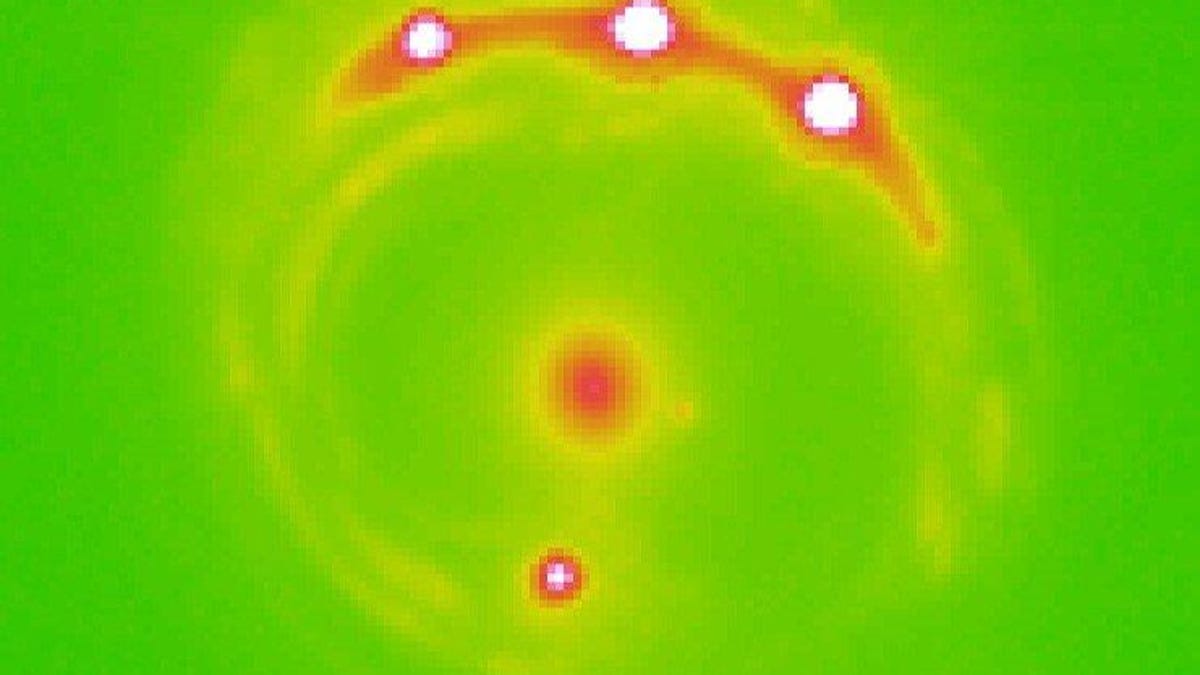Planets beyond our galaxy spotted for the first time
Scientists have used light bent by gravity itself to detect planets over 3 billion light-years away from Earth.

Believe it or not, there are trillions of planets in the red dot at the center of this image.
Our Milky Way galaxy is massive at around 100,000 light-years across, making the prospect of directly observing any planets beyond our galaxy with conventional telescopes basically impossible.
But now researchers have used a technique called gravitational microlensing to spot a number of planets beyond our galaxy for the first time.
I previously explained the mind-bending concept of gravitational microlensing here, but it basically involves observing distant objects in space by measuring how the object's gravity bends the light of an aligned, even more distant object behind it.
Scientists from the University of Oklahoma applied this technique to data from NASA's Chandra X-ray Observatory to zoom in on a galaxy called RX J1131-1231 some 3.8 billion light-years away.
What they found was that a population of unbound or "rogue" planets that don't orbit a particular star and appear to be roaming around the distant galaxy. The team calculates that the population includes planets ranging from the size of the moon to the size of Jupiter.
"There is not the slightest chance of observing these planets directly, not even with the best telescope one can imagine in a science fiction scenario," said OU postdoctoral researcher Eduardo Guerras in a news release Friday. "However, we are able to study them, unveil their presence and even have an idea of their masses. This is very cool science."
The researchers' findings have been published in the Astrophysical Journal Letters.
Until a few decades ago, it wasn't clear there were any planets beyond our solar system. We've since observed thousands of exoplanets within the Milky Way and presumed that billions more are out there unseen, as well as trillions more in other galaxies. Now we finally have evidence to back up the presumption that extragalactic planets exist, and the ever-emerging notion that our corner of the universe may not be so unique.
Crowd Control: A crowdsourced science fiction novel written by CNET readers.
Solving for XX: The tech industry seeks to overcome outdated ideas about "women in tech."

